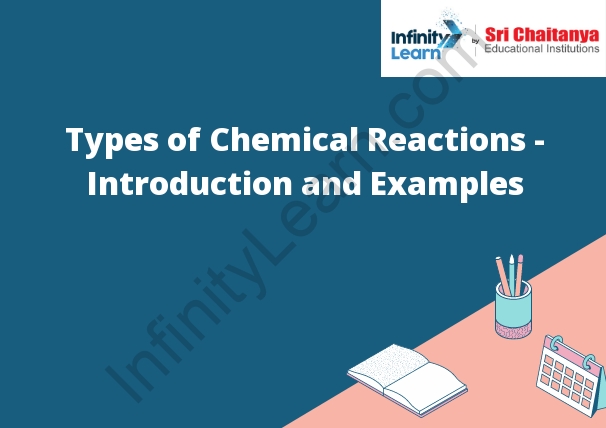Table of Contents
What is Chemical Reaction?
A chemical reaction is a process that changes one set of chemical substances into another. In a chemical reaction, atoms are rearranged to form new substances.

Characteristics of a Chemical Reaction
When two substances chemically react, they form a new substance with different properties. The reaction can be fast or slow, depending on the substances involved. In a fast reaction, the new substance is formed almost instantly. In a slow reaction, it can take minutes, hours, or even days for the new substance to form.
The rate of a reaction can be affected by the temperature, the concentration of the substances involved, and the surface area of the substances. A higher temperature will usually cause a reaction to happen faster, while a higher concentration of substances will make the reaction faster. A reaction that takes place on a small surface area will be faster than one that takes place on a large surface area.
Types of Chemical Reactions
There are four types of chemical reactions:
1. Combination reaction: In a combination reaction, two or more substances combine to form a new compound.
2. Decomposition reaction: In a decomposition reaction, a compound decomposes into two or more substances.
3. Single displacement reaction: In a single displacement reaction, one element displaces another from a compound.
4. Double displacement reaction: In a double displacement reaction, two elements swap places in a compound.
There are three types of chemical reactions: synthesis reactions, decomposition reactions, and exchange reactions.
In a synthesis reaction, two or more smaller molecules combine to form a larger molecule. In a decomposition reaction, a larger molecule breaks down into smaller molecules. In an exchange reaction, two smaller molecules swap atoms or groups of atoms.
List of Common Chemical Reactions
1. Combustion: a chemical reaction between a fuel and oxygen that produces heat and light
2. Oxidation: a chemical reaction that involves the loss of electrons
3. Reduction: a chemical reaction that involves the gain of electrons
4. Hydrolysis: a chemical reaction that involves the breakup of a molecule into two or more parts by the addition of water
5. Dissolution: the process of breaking down a solid into individual molecules or ions that can then move independently
6. Ionic Bond: a type of chemical bond that involves the transfer of electrons from one atom to another
7. Covalent Bond: a type of chemical bond that involves the sharing of electrons between two atoms
8. Polar Covalent Bond: a type of covalent bond in which the electrons are not shared equally
9. Nonpolar Covalent Bond: a type of covalent bond in which the electrons are shared equally
10. Enzyme: a protein that catalyzes a chemical reaction in the body






